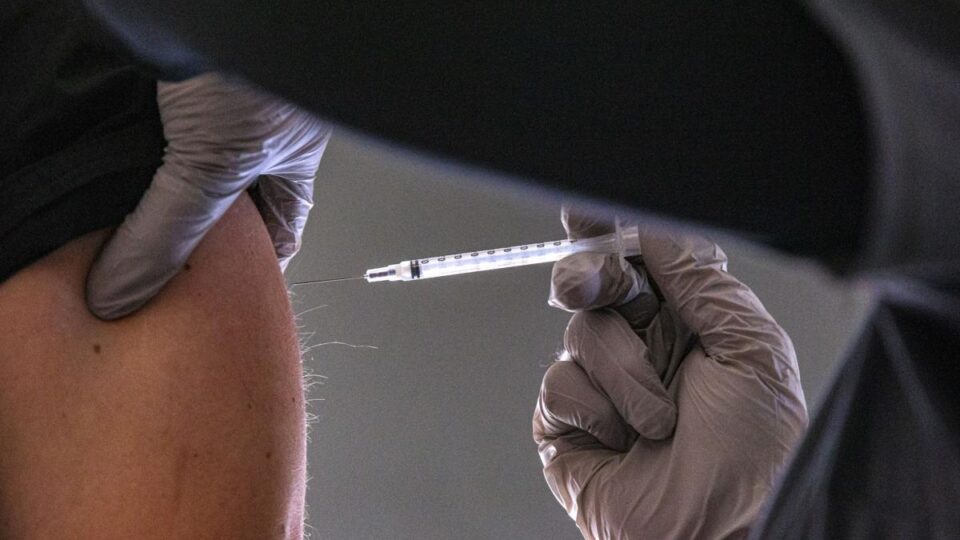As of April 5th, all Iowans are eligible to receive vaccinations. Previously, state guidelines restricted vaccines to high-risk groups such as essential workers, adults aged 65 and up, or people with pre-existing medical conditions. Now that eligibility has expanded, securing an appointment may be a difficult task.
On February 8th, the Iowa Department of Public Health announced a contract with Microsoft for an online vaccine scheduling system. A little over a week later, on February 17th, Governor Reynolds announced the contract’s cancellation.
Reynolds said of the Microsoft system, “…it would not be possible, in a timely manner, without significant disruption to [Iowa’s] current systems.” Reynolds spoke of plans to improve current systems rather than implement a new one. “We did not want to slow down the progress that we’re making,” said the governor.
As of today, Iowa has no centralized registration system. The Department of Public Health advises Iowans to contact local health providers and to regularly check pharmacy websites for openings.
Local tools
Several Iowans created new tools to make vaccine registration easier in the absence of statewide action. Todd Brady created Vaccine Hunter, a website that finds and publishes any available appointments at pharmacies across the state.
Another Iowan, Brian Finley, took to social media with his appointment-searching technology. His Twitter account, Iowa Vaccine Alerts (@IAVaccineAlerts) automatically posts when new appointments are available. The automated tweets contain various pharmacy locations; from there, it is up to the user to schedule an appointment on the pharmacy’s website.
The account currently has over 30,000 followers. Finley encourages users to turn on tweet notifications, because appointments usually fill up in a matter of minutes.
Additionally, Connor Uhlman created Iowa Vaccine Notifications, a website that allows users to sign up for text messages. The site checks for open Hy-Vee pharmacy appointments in the user’s area. When interviewed by the Iowa City Press-Citizen, Uhlman said he hoped his website could assist typically underserved populations.
Finley told the Iowa City Press-Citizen that he decided to help Uhlman by altering his own notification system. Finley’s system now checks for appointments every 3 to 4 minutes while Uhlman’s website checks every 60 seconds, aiding more vulnerable users.
By the numbers
It seems that these local efforts have indeed helped vaccine distribution. As of April 16th, Iowa has administered over 2 million doses, according to the state’s COVID-19 informational website. A total of 851,762 Iowans are fully vaccinated against COVID-19, while an additional 389,124 Iowans await a second dose.
Demographic data on the state’s website shows that over 80% of vaccine recipients were white. The 60-69 age range continues to be the most vaccinated, making up nearly 23% of administered doses. 56.53% of recipients were female, while the other 43.47% were male.
Compared to the rest of the nation, Iowa is doing pretty well with vaccine distribution. According to CDC data, 27.2% of the state is fully vaccinated, ranking Iowa at 16th in the nation. Maine currently ranks 1st, with 31.5% of the state’s population fully vaccinated, and Georgia ranks last with 17.9%.
Concerns
The numbers look good for Iowa, but not everyone is actively looking for the vaccine. An Iowa Poll from the Des Moines Register shows that 27% of Iowa adults don’t plan on getting vaccinated.
Another concern is the recent halt on the Johnson & Johnson vaccine. Out of over 7 million recipients, six women developed a rare blood clot within 1-3 weeks after their vaccinations. The FDA instructed pharmacies across the U.S. to stop administering doses of the Johnson & Johnson vaccine in order to further investigate whether or not it is linked to the blood clots.
The delay is unfortunate; Johnson & Johnson’s vaccine was easier to distribute because it only required one dose. With a substantial portion of the U.S. already hesitant about receiving the vaccine, the Johnson & Johnson news may perpetuate certain fears. Public officials continue to stress that there is no evidence of any significant issue with the Pfizer and Moderna vaccines, encouraging all citizens to get their vaccines as soon as possible.




